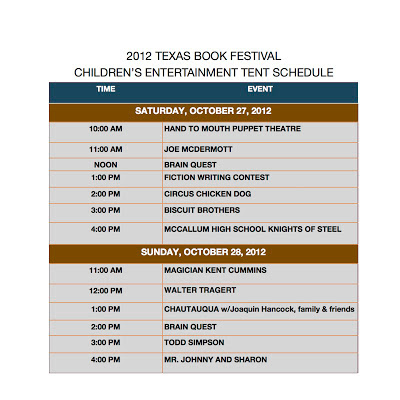A remarkable TED talk that challenges conventional wisdom about stress. In a few short minutes, the description says, “Psychologist Kelly McGonigal urges us to see stress as a positive, and introduces us to an unsung mechanism for stress reduction: reaching out to others.”
Her research revealed a fascinating detail about what we have long considered to be one of the demons of stress — cortisol. While cortisol may be responsible for a lot of unhealthy outcomes (hypertension chief among them), what scientists have recently discovered is that cortisol is also responsible for a hugely beneficial outcome. It appears that, through a cascade of biological processes, cortisol triggers a powerful impulse – an almost instinctive, persistent drive – to reach out to others.
It makes sense. When we are under stress, or when we’re grieving some sort of loss, many of us do feel compelled to reach out to others for support. We usually seek the company of those we love and trust most. And if we reach out and turn up empty-handed, we try again, and again, until we find a connection somewhere, anywhere, that can provide us some relief. And it is in those moments, in those repeatedly successful or failed efforts to connect, that we realize who we want to keep in our lives, and who we should let go, painful as it may be.
But that’s only part of the story. Because while some of us can and do reach out in times of need, others of us have learned – or perhaps have been conditioned – to avoid reaching out, I suspect out of fear or shame. And I’d venture that many of those people become writers.
When I was teaching public relations at St. Edward’s University, one of my first classroom assignments was this: I asked my students to forget about spelling or grammar or punctuation and write a stream of conscious reply to the following question: “What’s bothering you?”
I got the idea for this assignment after reading about a psychology professor at The University of Texas who spent years studying grief and its outcomes. He asked students who had suffered a loss or experienced some trauma to keep a daily journal, and in it they were to write down their thoughts and feelings over a period of months. Their outcomes were compared to a control group of students under the same circumstances who did not keep a journal. And what the UT professor discovered is that the students who wrote through their grief felt better sooner – and in fact were happier and healthier in the long-term. Years after participating in the study, students who wrote through their grief continued to report being happier and more successful, and they had fewer illnesses and doctor visits than the non-journaling control group.
The exercise with my students seemed beneficial as well. (I should note that “What’s bothering you” wasn’t a one-time assignment; it was the first part of a semester-long writing project based on the premise of that question.) For me, it turned out to be an incredibly useful teaching tool.
I learned more about my students from that one piece of writing than I could possibly have learned about them over the course of an entire semester. I read awful, gripping, staggering stories that shocked me, that made me cry sometimes, or made me want to take up the almighty sword of justice and go to battle on behalf of my students. I did none of those things. I didn’t act on their words, their confidences…I let them be.
The assignment also seemed to have an impact on my students. One of them wrote me a letter about a year after he took my class, and he said that he enjoyed that assignment so much that he kept on writing about what was bothering him even after the semester ended. Journaling through stress, or grief, or hardships had become a part of his daily life, and it improved his quality of life.
As most of you know, I am a writer. I’ve always written, all my life. I grew up in a household where children were seen and not heard. I had no voice. When I tried to use it, I was often ignored, invalidated, or shamed for speaking up or crying out.
By the grace of God and my Uncle Charlie, I learned to express myself on paper. Writing became a powerful, creative and cathartic exercise that sustained me through childhood and many tough adult years until I finally learned how to speak up and reach out. The latter still doesn’t come easy, though, to this day. And so. When I reach out and come back empty-handed, when I feel alone and unheard, I turn to the written word. And it helps. It always helps.
These days, words that would once have been safely tucked away in spiral notebooks are now often posted in public forums, where there are as many critics as there are sympathetic readers. Posts can’t be too Debbie Downer or too Patty Perfect or people are gonna complain. That’s when you have to decide who you’re writing for – and why.
I’ve been through a lot over the past year, and my posts in social media and here have reflected it. And I’d be shocked if reader reactions didn’t span the full range – from sympathy to laugher to disgust. I do know that many of you have read my posts and subsequently worried about me. But you shouldn’t. Because writing makes me feel better. It’s the wordsmith’s pressure relief system. When you haven’t seen or heard from me; when there are no words to read….that’s when you should check in, and I bet that’s true for a lot of other people, too.
What I’m hoping you’ll take away from this – aside from the fact that you should watch this TED talk, is that stress is apparently good because it drives us out of our comfort zones and compels us to find one another.
And when we really need someone and can’t find them — for whatever reason, well, there’s still a place for our words, still a place where we can connect, somehow, with someone, somewhere, and share what’s in our hearts or stuck in our heads. It’s not the writing that fills a page, but rather the empty spaces that we should be paying attention to, if you ask me.
Watch:





